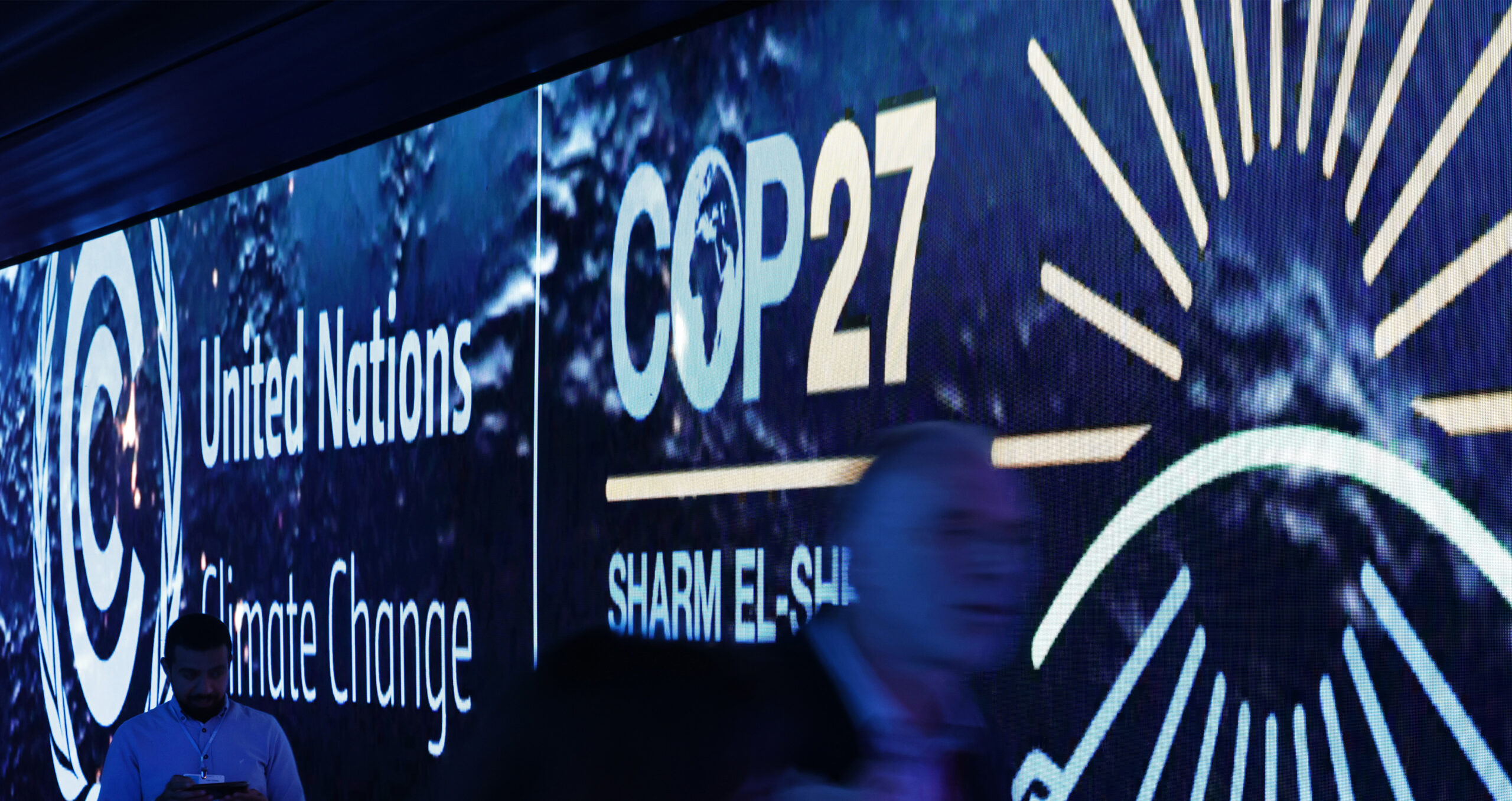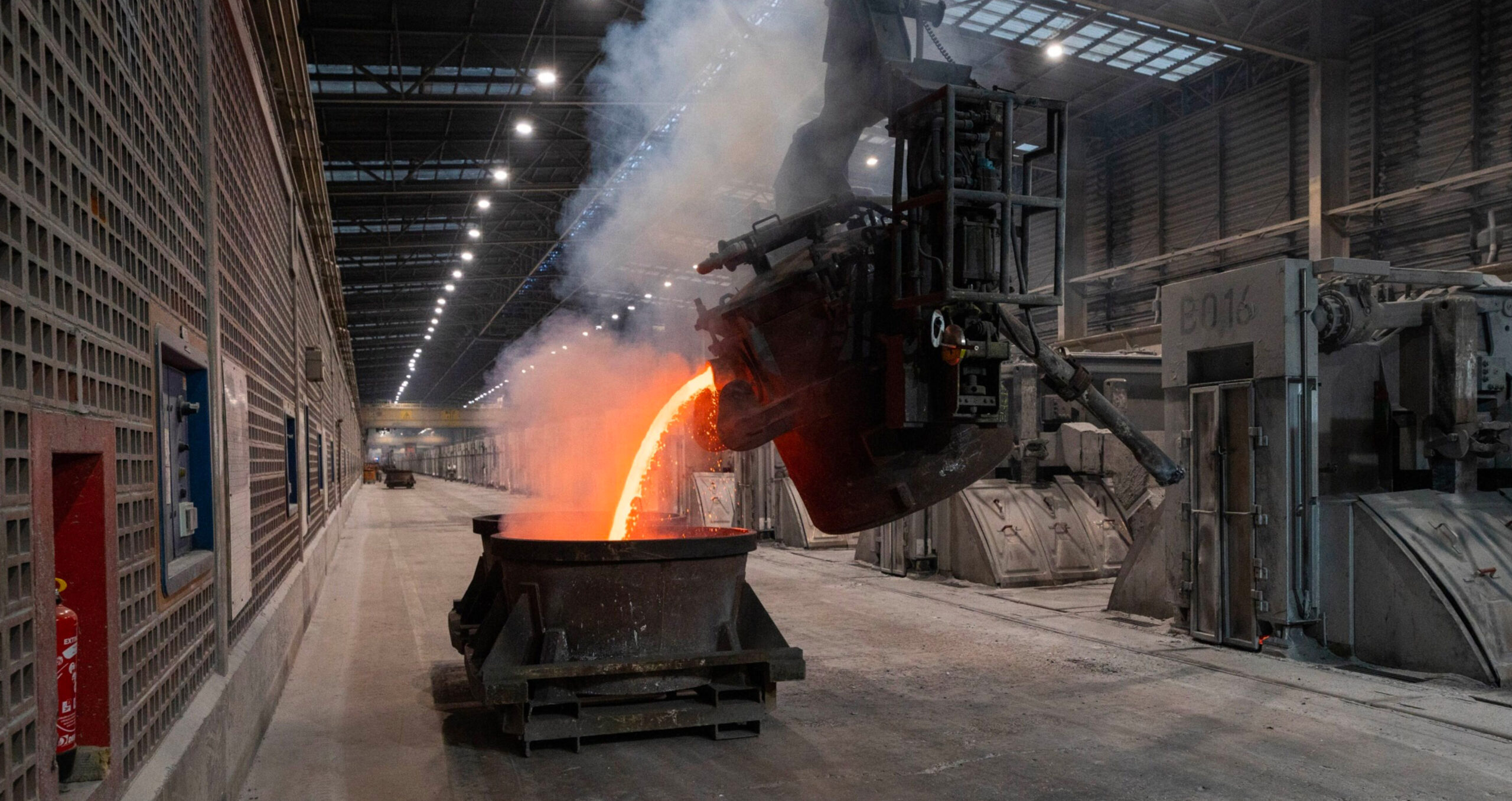
Experts panel: carbon pricing, innovation and transparency since last COP

Sustainable Views moderated a discussion at the World Climate Summit running alongside COP27 at the end of the first week of official meetings to gauge current opinions and priorities on regulation, business accountability and measurements of climate action.
A week into this year’s UN climate conference – and a year since commitments were made at COP26 in Glasgow – what has changed? What does the private sector need from policymakers to help implement climate solutions, and what will drive progress? Below are the views of the four panellists that joined the World Climate Summit’s opening session. Their comments have been edited for clarity and brevity.
Carbon pricing and new business models
Ralf Pfitzner, head of sustainability, Volkswagen:
On the one hand, I believe that we need more courageous action from policymakers, especially in the field of carbon pricing. For us as manufacturers, it would also help to balance trade-offs in our value chains if we have solid carbon pricing – ideally globally, but at least in all major economies. But, on the other hand, not having carbon pricing shouldn’t be an excuse for businesses not to participate in the transition.
It is up to us businesses to have credible transition plans in place and set intermediate goals in line, for example, with the Science Based Target initiative. That’s what we, at Volkswagen, have done, reducing carbon emissions by 2030 by 30 per cent compared to 2018. This year, I can say we have reduced our emissions over our products’ life-cycle by 1.7 times over the past 12 months. If we multiply this with the number of cars built, you are in the two-digit million range of effective CO₂ emissions reduced; so this is happening now.
Further, in the first three quarters of this year, there has been an uptick in the sales of electric vehicles globally of 70 per cent compared to the same period last year. Within the past year, the expectation of revenue potential for EV for 2030 has also increased, by 40 per cent.
Not all carbon is equal
John Kornerup Bang, senior vice president, sustainability transformation, Stora Enso:
We are at a very different place compared to when we were in Glasgow. In Glasgow, in all the conversations I took part in, we were talking about the need for more policy action, the need for a global level playing field, and the need for carbon pricing in a global system. And there’s no doubt that that would be incredibly beneficial if we could have that.
But let’s be frank, we have moved much further away from that since Glasgow: we are looking at fragmentation. Over the years, globalisation has contributed to unsustainable economic growth, but it has also allowed us to distribute technologies efficiently across the globe, to scale innovation, because you can access markets and materials globally. We have to acknowledge that, for the foreseeable future, this globalisation dividend is gone. We have to do without it.
Since Glasgow we have also seen a big movement in terms of how civil society, the younger generation, reacts to the targets companies set for themselves, the commitments we make, and even some of our actions. Greenwashing has been a term for many years, but it’s very [popular] right now.
The big question is: are you simply ‘optimising’ an unsustainable system or are you really, as a business, setting yourself up for transition? This is the test we have to pass: create an economy that can provide jobs and opportunity for 10 billion people within the planetary boundary. I don’t think we can use the excuse ‘we’re not being given a level playing field’ – a lot of innovations disrupt the market anyway, in an uneven playing field.
Also, I think we should bear in mind that a reduction of one tonne of CO2 is not equal to a reduction of one tonne of CO2 elsewhere. Certain actions leading to emission reductions will simply relate to the optimisation of a system of delivery of services that is unsustainable, that can’t be transformed to become sustainable. While certain carbon emissions come from activities that move us towards a new system that is truly regenerative. Exactly how to define a method to address this is difficult, but we have to go into climate discussions with that notion. It’s the CO2 reductions that change the system we need to focus on and invest in – and I think that notion is crucial and it’s lacking in most dialogues.
Collateral benefits
Terry Heymann, chief financial officer, World Gold Council:
The World Gold Council is an organisation that represents the global gold industry and the gold market is very committed to playing its role in the transition to net zero. This means also creating opportunities for those involved in and around operations linked to gold mining, and the broader gold supply chain.
There is a mine not that far away from here [Sharm el-Sheikh] in the eastern desert of Egypt, which is building one of the biggest solar arrays in the African continent. Why is it building the solar array in the middle of a desert? Well, because there’s gold there and in order to access the gold, they’re building solar arrays that will provide power for that mine site. But it’s also deliberately being engineered over capacity so it can provide energy for the local communities that up until now only had a very intermittent supply.
All businesses need to be engaged, playing their part to say ‘how do we continue to do what we are here to do – that is, to deliver returns to shareholders to be economically viable – but how do we do that in a way that actually positively supports the transition?’
The technology is available; what’s needed is the financing. And how do you get financing? By developing partnerships that put in place these renewable energy sources in a way that provides multiple benefits. Businesses can play a really important role both in supporting that transition to net zero, and also addressing the broad societal concerns.
Accountability and transparency
Cassie Flynn, head of the Climate Promise initiative, UN Development Programme:
People around the world, governments around the world, want promises to be made and promises to be kept. The days have gone when you could create a coalition, make a big statement, have a big event and then not follow through with it. And this is something that we’ve seen in these negotiations and we’ve seen over the last year.
So much of the world has changed since Glasgow, but I think it’s only underscored that the climate crisis is here: it is on the doorsteps of countries. I work with 127 countries around the world – the UN Climate Promise offers support to help countries with their climate policies under the Paris agreement – and we’ve seen a few things come out of this experience. And certainly one of these is that companies are a key part of what has to happen on climate change. Countries are putting these policy packages together; countries are trying to move the needle, but that needle is going to go nowhere unless companies are at the table in a meaningful way.
Companies are really starting to put forward climate action as central to their policies. Hopefully here in Sharm el-Sheikh, at COP, we will be able to continue to give signals from these negotiations to companies to stakeholders around the world.
These negotiations are tough, and one of the reasons they’re tough is because it [climate change] does affect every aspect of our economy; it affects every aspect of society. And so figuring out how to prioritise how the money needs to flow and who is accountable for some of these big picture pledges is something that negotiators are battling with right now at COP.
We talk a lot about transparency as if it’s a magical system where you can flip a switch and it turns on, when in reality it relies on systems to collect data, analyse data, report on this data.
I also think we need to change the narrative around transparency. Yes, it is about accountability, that’s a key part of it. But I also think it’s about how we are collectively demonstrating progress. How can we learn from companies that have front movers? How can we learn from from organisations that are really trying to be as as transparent as possible, despite some very difficult technical and operational challenges. I would also encourage, as we do at the UN Climate Promise initiative, real collaboration to create an international system where this data is accessible by a variety of different different actors, and to be able to have cross-company, cross-country, cross-sector conversations about what transparency looks like within within those groups.
A lot of the future of climate action will be about being able to ask the right questions about progress, and organisations, companies and countries being able to respond with the data that that gives us an accurate picture.
Similar Articles

G7 leaders need to show climate clarity

How CBAMs can reduce emissions without causing geopolitical strife


